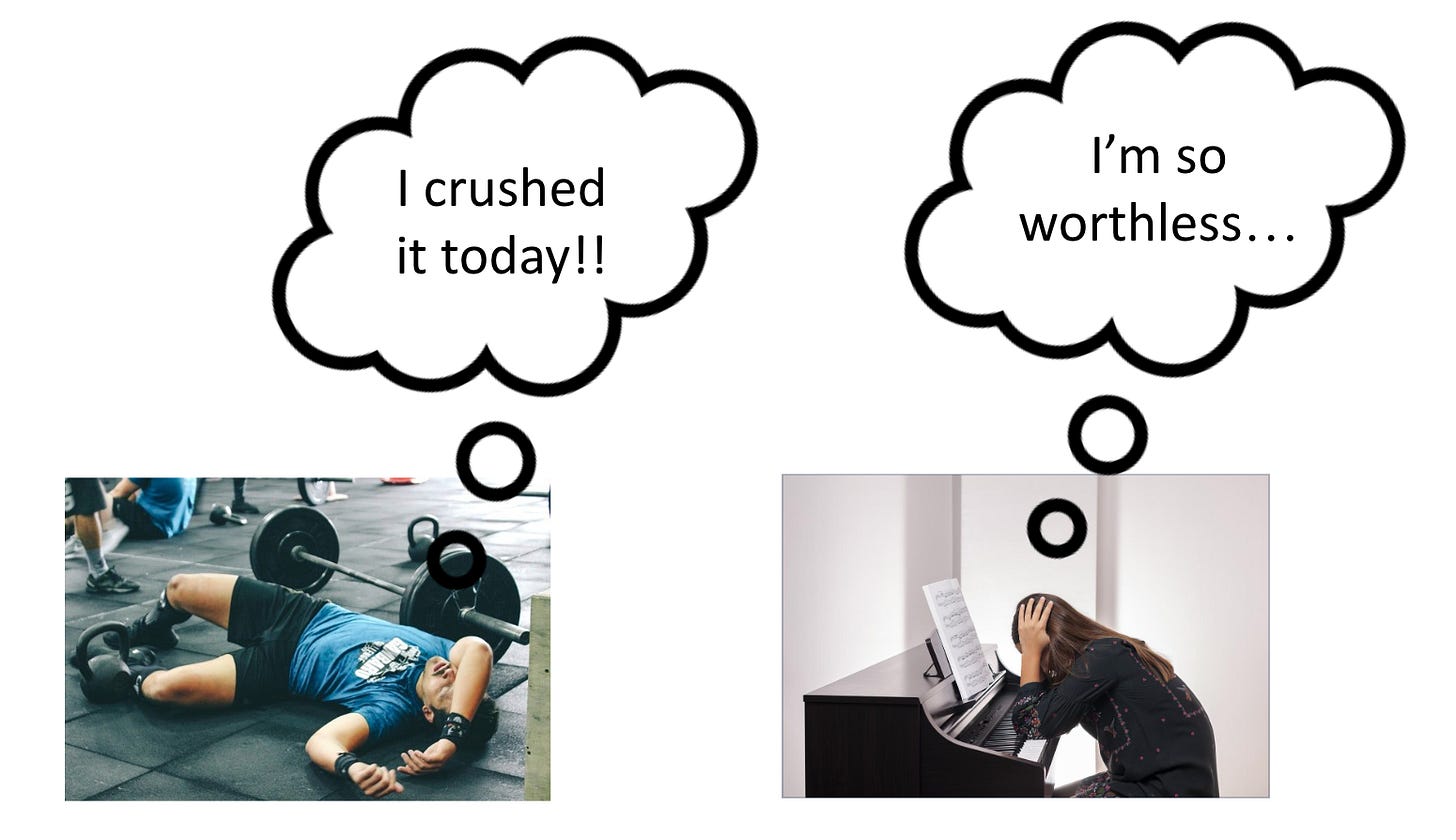The Challenge of Learning Hard Things
Struggle equals growth.
Stimulating plastic reorganization in brain tissue in order to maintain or expand our cognitive capabilities is how we keep it in optimal condition.
Which means that, in order for us to grow, (beyond times of programmed growth like early childhood, puberty, etc.) our brain must get the message that the status quo is inadequate. We must let it know that there’s something we can’t do today that we need to be able to do tomorrow, or else we might die.
So, sending a signal that strong typically requires pushing ourselves up to our current limits. For most of human history, we probably didn’t push ourselves to the limit unless doing so was critical for survival. So being pushed to the limit serves as a reliable cue that things need to change.
Yet, pushing our brain to the edges of its capabilities is something we tend to do less and less of as we age. We do it routinely in early life, and then rely heavily on the fruits of that labor as grown ups.
While there are many reasons why the pace of new learning tends to decline so sharply with age, one of them is undoubtedly our attitude towards struggle.
Pushing ourselves to the limits of our current cognitive capabilities in any domain (music, sports, language, math, etc.) requires struggle. It requires that we push up against our zone of proximal development, that territory just beyond our current ability.
Having worked with thousands of adults, I can tell you that most of them hate being in that zone. The typical response to struggling to learn something is frustration, or even anger.
It’s a lingering vestige of the fixed mindset, or the belief that our abilities are innate and static. Somewhere deep down we still believe that we do things like piano or tennis or math or sculpting our dancing or acting to discover whether we’re good at them. To find out if we “inherited those genes.”
That was the lie of innate ability we’ve been told all of our lives (remember those horrid “aptitude” tests?). And as much as we might embrace the growth mindset intellectually, it’s still hard to truly put into practice.
But it is possible to flip your mental script about struggling to learn things. We’ve widely embraced this mental script in the physical realm - when it comes to exercise, the harder we push ourselves, the more we struggle, the better we feel about our efforts.
Because we know that, thanks to those efforts, we’ll be fitter, healthier, and more capable.
Because we know that struggle equals growth.
And the brain is no different.
Struggle is just as necessary to keep our brain fit, healthy, and capable.
And unlike physical exercise, learning hard things doesn’t actually hurt! Any unpleasantness and resistance we feel is purely psychological, entirely a product of the stories we tell ourselves.
Which is why realizing our cognitive potential and keeping our brain in peak condition must begin with changing that story.
Study: “Priming cardiovascular exercise improves complex motor skill learning by affecting the trajectory of learning-related brain plasticity”
As discussed, learning hard things is how we signal growth and repair in the brain. In my view, a healthy lifestyle is what then determines the results on those learning efforts.
One way to think of this is that cognitive (or physical) exercise plants the seed, and our lifestyle determines the conditions in which that seed grows. The better our soil, the greater our return on our efforts.
But we can’t grow anything without a seed.
This particular study provides a nice illustration of this concept.
In it, two groups of subjects were taught a challenging dynamic balancing task (balancing on a seesaw balance board) over a 6-week training period. Half of those subjects (the Cardiovascular Exercise group) also performed 7 cycling training sessions over the span of 2 weeks just prior to learning the balancing task.
The subjects in both groups improved on the balancing task over the course of 6 weeks, but the ones in the exercise group improved more. And that improvement was associated with greater structural remodeling in relevant brain areas.
Again, the key takeaway being that a healthy lifestyle translates to a greater return on our learning efforts. It improves the quality of the soil.
But remember, you must first plant the seed.
Recently On The Better Brain Fitness Podcast
In case you missed them, here are a few recent episodes from the Better Brain Fitness podcast.
“How Do You Know If Your Brain Is Getting Enough Omega 3?” - The Omega-3 fatty acids DHA and EPA are critical nutrients for the brain. Ideally, we’d get all we needed from our diet. But just how do we know if we’re getting enough, and when we might need to supplement?
“Is Alzheimer’s A Form Of Diabetes?” - Some researchers have advocated that Alzheimer’s be referred to as “Type 3 Diabetes” to reflect its similarities with other disorders of glucose metabolism. Is it that straightforward, or is there more to the story?
“Q & A Round-Up, Plus This Or That!” - We tackle a range of listener questions in this rapid-fire episode, and wrap it all up with a riveting game of “This or That!”
Do you have a question for the Better Brain Fitness podcast? Click here to submit it.
Brain-Boosting Resource: brilliant.org
Brilliantly designed (had to be done), entertaining, snack-sized tutorials on topics in math, science, engineering, and more. Hard to beat for building your mental toolkit and stimulating growth in those conceptual networks. ;)
Hero of the Week: Virginia Oliver
Virginia Oliver, the “Lobster Lady” of Maine, has been harvesting lobsters for 95 years. She just turned 103, and has no plans to retire.
That’s all for this issue. Thanks for reading!
Josh




